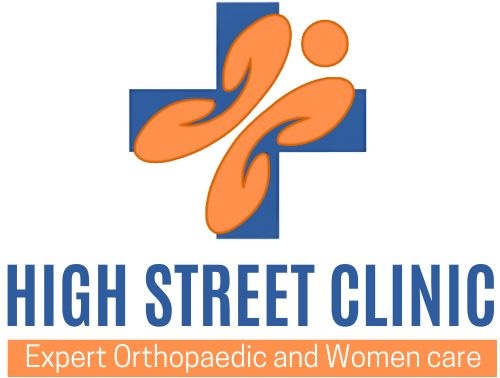When it comes to women’s health, the Pap smear is often at the forefront of discussions, as it plays a crucial role in detecting cervical cancer early. However, while the Pap smear is an essential component of gynecological care, there are several other vital checkups and screenings that contribute to a comprehensive approach to a woman’s reproductive health. This guide highlights various important gynecological checkups and exams beyond the Pap smear that every woman should consider for maintaining overall well-being.
1. Pelvic Exam
A pelvic exam is a routine part of a gynecological checkup that assesses the health of a woman’s reproductive organs, including the uterus, ovaries, and vagina. The exam involves a physical inspection of these organs, checking for any abnormalities such as cysts, infections, or irregularities.
During a pelvic exam, a healthcare provider can identify signs of conditions like fibroids, endometriosis, and ovarian cysts. Regular pelvic exams are recommended starting from age 21 or sooner if a woman is sexually active.
2. Breast Exam and Mammogram
Clinical breast exams are essential for detecting lumps or abnormalities that could indicate breast cancer. Women should perform self-exams monthly and have a clinical breast exam annually as part of their routine gynecological care.
Mammograms are recommended for women aged 40 and older, or earlier if they have a family history of breast cancer. Mammography is an X-ray imaging method that can detect early signs of breast cancer, sometimes even before a lump is palpable.
3. HPV Test
Human papillomavirus (HPV) is a common virus linked to cervical cancer and genital warts. While a Pap smear can detect cell changes caused by HPV, an HPV test specifically identifies the presence of the virus itself.
It is often recommended for women over the age of 30, as HPV infection is common in younger women but usually resolves on its own. If a woman has persistent HPV infection, she may require closer monitoring for potential complications.
4. Sexually Transmitted Infection (STI) Screening
Routine testing for sexually transmitted infections (STIs) is vital for sexually active women, regardless of age or relationship status. STIs like chlamydia, gonorrhea, syphilis, and HIV can have severe health implications if left untreated.
The frequency of STI screening depends on a woman’s risk factors, sexual activity, and relationship status. Many STIs are asymptomatic in women, making regular screening important for early detection and treatment.
5. Bone Density Test
Osteoporosis is a condition that weakens bones, making them more susceptible to fractures. Women, especially after menopause, are at a higher risk due to decreased estrogen levels.
Bone density tests, also known as DEXA scans, are recommended for women starting at age 65 or earlier for those with risk factors such as a family history of osteoporosis, smoking, or long-term steroid use.
6. Hormone Testing
Hormone tests assess levels of estrogen, progesterone, and other hormones that affect reproductive health. These tests can help diagnose conditions such as polycystic ovary syndrome (PCOS), thyroid disorders, and menopause.
Hormonal imbalances can lead to symptoms such as irregular periods, mood swings, weight gain, and fertility issues. Women experiencing these symptoms may benefit from hormone testing to determine underlying causes and appropriate treatment options.
7. Thyroid Function Tests
The thyroid gland regulates many bodily functions, including metabolism, heart rate, and body temperature. Thyroid disorders, such as hypothyroidism or hyperthyroidism, are more common in women, especially as they age.
A simple blood test can measure levels of thyroid-stimulating hormone (TSH) and other related hormones to diagnose thyroid issues. Women with symptoms like fatigue, weight changes, or hair loss may benefit from thyroid testing as part of their gynecological checkup.
8. Blood Pressure and Cholesterol Screening
Cardiovascular health is an important component of women’s health, yet it is often overlooked in gynecological care. High blood pressure and cholesterol are significant risk factors for heart disease, the leading cause of death in women.
Women should have their blood pressure checked regularly, and cholesterol levels should be assessed starting at age 20, especially if there is a family history of heart disease. These screenings help identify cardiovascular risk factors early, allowing for timely intervention.
9. Diabetes Screening
Diabetes is a chronic condition that can lead to serious health issues, including cardiovascular disease, kidney damage, and nerve damage. Women with risk factors like obesity, family history, or gestational diabetes should be screened regularly for diabetes.
A fasting blood sugar test or an A1C test can determine blood sugar levels and help diagnose diabetes or prediabetes. Managing blood sugar levels early can prevent complications and improve overall health.
10. Fertility and Reproductive Health Assessments
For women considering pregnancy or those experiencing difficulty conceiving, a fertility assessment can provide valuable insights into their reproductive health. This may include hormone testing, ovulation tracking, and assessments of reproductive organs through ultrasound.
Additionally, women over 35 or those with conditions like endometriosis or PCOS may benefit from a fertility checkup to understand their options and address any potential challenges early.
11. Ultrasound Exams for Ovaries and Uterus
Pelvic ultrasounds can provide detailed images of the uterus, ovaries, and other pelvic structures. These exams are helpful for detecting fibroids, cysts, or other abnormalities that may not be visible through a routine pelvic exam.
Transvaginal ultrasounds, in particular, are useful for diagnosing conditions like endometriosis, ovarian cysts, and other reproductive health issues.
While the Pap smear is vital for detecting cervical cancer, a comprehensive gynecological care plan should encompass a variety of other tests and screenings. From routine pelvic exams to specialized tests like mammograms, bone density scans, and hormone testing, these screenings contribute to a holistic approach to women’s health. Regular gynecological checkups empower women to monitor their reproductive and overall health, catch potential issues early, and make informed decisions about their well-being. Consulting with a healthcare provider about the appropriate screenings for your age, lifestyle, and family history can help ensure that you receive the care you need at every stage of life
